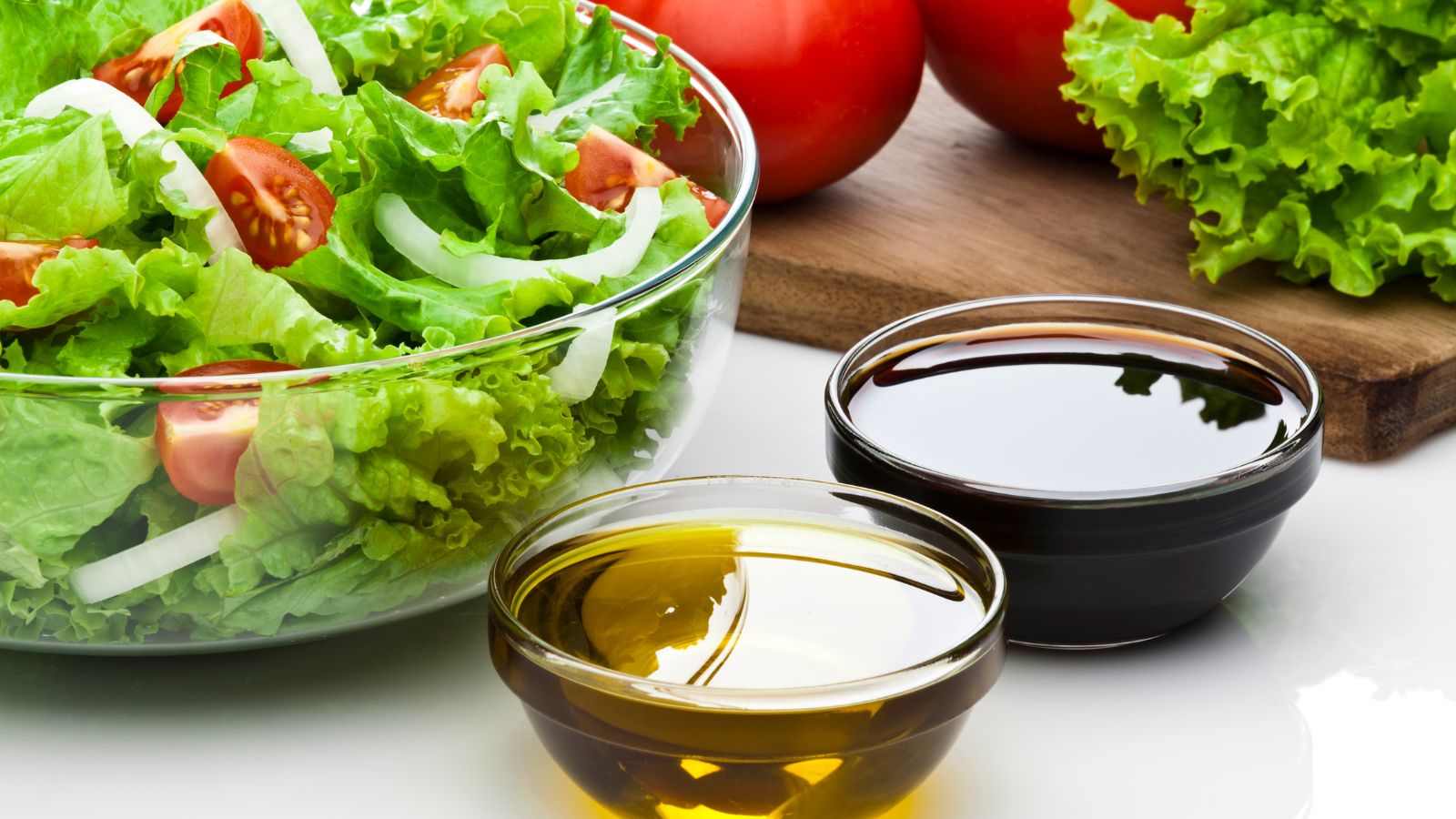
Will Vinegar Kill Grass? What You Must Know Before Spraying
Photo Credit: Canva Pro
It is common knowledge that vinegar can kill weeds naturally. But many people are curious if vinegar can also kill grass. To cut a long story short, yes.
When used incorrectly, vinegar can hurt your lawn. Look at how vinegar works, how it's different from Roundup, and what risks it poses to your plants and soil in this article. Our discussion will also include smarter and safer ways to get rid of weeds.
Will Vinegar Kill Grass?
Photo Credit: Canva Pro
It might look like vinegar is a safe way to get rid of weeds, but it does more than that. It doesn't pick and choose which plants to kill. Vinegar kills the green tissue it contacts but typically does not affect roots or woody stems.Those things include your grass and the flowers close by.
How Vinegar Affects Grass and Why It Kills More Than Weeds
Acetic acid in vinegar breaks down plant cell walls and pulls water out of them. Vinegar from the store, which has 5 percent acetic acid, can kill young weeds and plants you want to grow, like lawn grass.
-
Acts on contact: Vinegar is a contact herbicide that only burns leaf surfaces, not roots.
-
Easily spreads: Spray vinegar can drift in light wind, harming nearby plants unintentionally.
-
No plant immunity: Whether it’s grass, flowers, or vegetables, vinegar will damage any green plant it hits.
Why Vinegar Isn’t a Selective Weed Killer
People apply vinegar weed killer to kill weeds in the hopes that it will work. But it can't tell the difference between grass, garden plants, and broadleaf weeds. The risk goes up when you add dish soap or salt.
-
Harms all plants: Vinegar affects green, living plant tissues but does not damage inert organic material like mulch or compost.
-
Homemade mixes are harsher: Adding salt can cause long-term soil toxicity, while dish soap primarily acts as a surfactant, helping vinegar stick to leaves.
-
Use carefully: Always wear gloves and use a spray bottle or pump sprayer to apply vinegar only on target areas.
Is Vinegar as Good as Roundup?
Photo Credit: Canva Pro
Quite a few people look for natural alternatives to Roundup. Vinegar weed killer might sound safer, but it's not nearly as good at getting rid of weeds, especially perennial and mature weeds.
Selective vs. Non-Selective Herbicides: What’s the Difference
Roundup kills plants all over their bodies. It kills the plant from the inside out as it moves through it. On the other hand, vinegar only works on young weeds because it only works on the surface.
-
Roundup reaches the roots: It moves through the plant’s system for complete kill.
-
Vinegar burns the top: It only affects what it touches, allowing roots of perennial weeds to survive.
-
Best for annual weeds: Vinegar works better on small weeds that are not yet established.
Effectiveness, Safety, and Cost Comparison
It might seem like vinegar is a cheaper option, but you might have to use it more than once for it to work well. Horticultural vinegar with more acetic acid is stronger, but it's also more dangerous.
-
Needs stronger vinegar: Household vinegar is too weak for stubborn weeds.
-
Can be harmful: Horticultural vinegar with over 11% acetic acid can cause burns and eye damage; protective gear is strongly recommended when handling such concentrations.
-
Less efficient overall: You may end up using more product and effort than you would with a traditional weed killer.
Is Vinegar Harmful to Soil?
Photo Credit: Canva Pro
Repeated or excessive vinegar use can slightly acidify soil and harm soil organisms in the immediate area, but moderate, careful use poses minimal long-term risk. At first, the acidity may not seem like a problem, but it has bad effects on the quality of the soil over time.
How Vinegar Changes Soil Chemistry and pH
Acetic acid may temporarily lower soil pH in the area applied, but its effects are short-lived and localized. This change can prevent plants from absorbing nutrients, even if you follow good lawn care practices.
-
Reduces soil quality: Acidic soil makes it harder to grow plants.
-
Slows plant recovery: Affected areas may take longer to support new growth.
Impact on Beneficial Soil Life and Future Planting
Not only does vinegar kill weeds, but it can also kill beneficial insects, fungi, and worms that keep the soil healthy. Over time, this makes the lawn less diverse and less effective.
-
Kills helpful microbes: These organisms break down organic matter and feed plant roots.
-
Harmful to soil life: Spraying vinegar repeatedly can degrade the soil’s ecosystem.
-
Use on hard surfaces only: The best use for vinegar is in sidewalk cracks or gravel areas, not where you want to grow plants.
Can You Spray Straight Vinegar on Weeds?
Photo Credit: Canva Pro
You can spray vinegar on weeds, but there are some important things you should know. Even though vinegar kills weeds right away, if you don't handle it right, it can hurt other plants, the health of the soil, and even your skin.
What USDA Research Says About Vinegar Strength and Timing
If you want to get rid of small weeds, white vinegar with 5% acetic acid may help. Higher concentrations, like 20%, are needed to get rid of tougher weeds better, but they can be dangerous.
-
More effective on young weeds: Lower concentrations only work on early-stage growth.
-
Higher concentrations are hazardous: Strong vinegar can harm skin and eyes.
-
Spray on a sunny day: Heat and sun improve its weed-killing power.
When Spot Treatment Is Acceptable and Safe
Spraying vinegar on specific spots might be a good idea if done carefully in separate areas. Along paths and cracks where there aren't many other plants is where it works best.
-
Ideal for sidewalk cracks: Reduces risk of harming other plants.
-
Use eye protection and gloves: Prevent injury from splashing or wind drift.
-
Avoid spraying near other plants: Vinegar can harm anything green it touches.
What Can FullyHealthy Do for You?
FullyHealthy sells natural items like white vinegar that are safe for use in the kitchen but not in the garden. Their vinegar is for cooking and health, not getting rid of weeds. It should be used to dress your next salad, not on your grass.
Natural Vinegars That Support a Healthy Lifestyle
The store sells vinegar-based foods that are good for people with allergies and the environment. These are food-grade and aren't made to be sprayed outside.
-
Napa Valley Naturals Champagne Vinegar: Great for cooking, not weed control.
-
Eden Foods Ume Plum Vinegar: Perfect for AIP meals and healthy recipes.
-
Not for weeds: These are safe to eat—not safe to spray.
Why You Shouldn’t Use These Products for Weed Control
You shouldn't spray these vinegars on weeds. Lawn care professionals say to follow the right steps to safeguard your garden, your health, and the environment.
-
Not strong enough: Food-grade vinegar won’t kill mature weeds.
-
Needs constant reapplication: Less effective than herbicide alternatives.
-
Protect your soil and plants: Avoid spraying food products outdoors.
Final Thoughts
It might look like vinegar is an easy way to get rid of weeds quickly, but it can be dangerous. It can kill small weeds, but it hurts nearby grass, soil, and plants. When spraying vinegar, be careful, especially in places where pets play or where you want to grow plants again.
If you want a better lawn, don't use household items. Even though it seems safer to use vinegar than chemicals, it still has an impact on the environment. When in doubt, talk to someone who knows how to take care of lawns. They can help you get rid of weeds in a way that doesn't hurt what you want to keep.
FAQs
Can boiling water kill weeds like vinegar?
Yes, boiling water can eliminate small weeds, but like vinegar, it also harms other plants and roots nearby. Be careful around pets and flowers.
Is vinegar lethal to all plants?
Yes, vinegar in large or small amounts can be lethal to grass, vegetables, or flowers. It is a non-selective option and should be used with care.
Can I use vinegar around pets?
No, keep pets away from treated areas. Vinegar may irritate pet paws or cause mild digestive upset if ingested in large quantities; avoid treated areas until dry.
Is vinegar safer than chemicals?
Not always. While it seems natural, high-strength vinegar can be just as harmful as chemicals. Always wear protection and avoid using it where pets or kids play.
How do I eliminate weeds without harming the environment?
Use mulch, boiling water in cracks, or pull weeds manually. If needed, apply vinegar in small amounts and avoid spraying on windy days. Always be careful.

Leave a comment